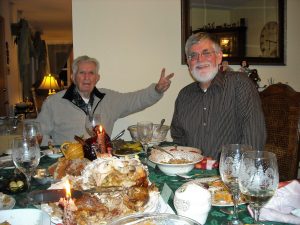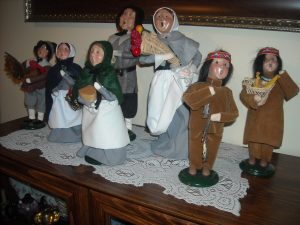Colossians 3:15-17
Let the peace of Christ rule in your hearts, since as members of one body you were called to peace. And be thankful. Let the message of Christ dwell among you richly as you teach and admonish one another with all wisdom through psalms, hymns, and songs from the Spirit, singing to God with gratitude in your hearts. And whatever you do, whether in word or deed, do it all in the name of the Lord Jesus, giving thanks to God the Father through him (NIV).
What are some blessings that you highly value? Now what are some characteristics that you highly value in other people? God highly values thankfulness. Yet I do not think that we take this positive quality of godliness very seriously. Read through the letter to the Colossians carefully and see the emphasis on being thankful. Thanksgiving should be part of our lives everyday. We should deliberately build it into what we are. One of the signs of a heart alienated from God is a lack of thankfulness to the Lord God. For although they knew God, they neither glorified him as God nor gave thanks to him, but their thinking became futile and their foolish hearts were darkened (Romans 1:21 NIV).
We offer thanksgiving through Jesus Christ (3:17). This is part of our larger life view. In everything we are to be Christ-focused. This approach honors the Triune God, because God designed this as the way to come to him and to honor him. First, I thank my God through Jesus Christ for all of you, because your faith is proclaimed in all the world (Romans 1:8 ESV, my emphasis). An examination of the New Testament references to thanksgiving reveals an emphasis on the grace of God given to us in Christ Jesus. This is why, since I heard about your faith in the Lord Jesus and your love for all the saints, I never stop giving thanks for you as I remember you in my prayers (Ephesians 1:15-16 CSB; cf. 1 Corinthians 1:4; 2 Corinthians 8:9; 9:15; Philippians 1:3-6; Colossians 1:3-4; etc.)
Since Adam disobeyed God and ruined our race, God is building a new humanity in Jesus Christ, in whom we are restored to God’s purpose for us. When we are giving thanks through Jesus our Lord, we are functioning according to God’s will and as a byproduct, we feel right. We are in alignment with God’s intention for our humanness.
When we offer our thanks through Christ, we honor him as the mediator between God and mankind. For there is one God and one mediator between God and mankind, the man Christ Jesus (1 Timothy 2:5 NIV). When we offer a sacrifice of praise through Jesus our great High Priest (cf. Hebrews 4:14), we display and develop humility before the living God. We are confessing our absolute need of Christ to consecrate everything to God concerning us, including our praise.
However, we do not want to think of this mechanically or ritually but personally. Offering thanks through Jesus recognizes our personal participation with him in worship. As new covenant priests (cf. 1 Peter 2:5), we join with him to glorify the Father. By faith we should have a lively sense of approaching the throne of grace with him as our leader.
To do this, we ought to prepare our hearts for worship. You might have to rush to get to the gathering of God’s people, because we live in a world where our best plans for getting ourselves and our family ready go astray. But there should be no rush in the inner persons of our hearts. “Oh no, now what am I doing?” Be calm; God knows what happens in your life, and your brothers and sisters in Christ need to accept that, too. Let’s have some holy deliberation in the way we live, and not act like we’re in some sort of panic or agitation.
Grace and peace, David

 Psalm 145:1-3
Psalm 145:1-3 Psalm 146:1-10
Psalm 146:1-10 Happy Thanksgiving!!!
Happy Thanksgiving!!! 2 Chronicles 20:20-30
2 Chronicles 20:20-30